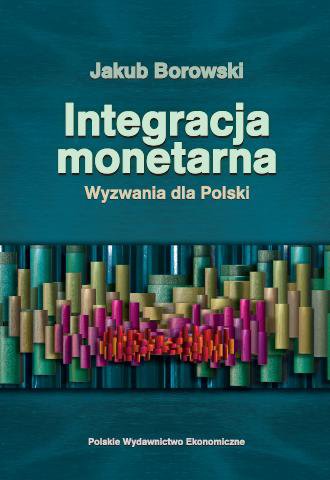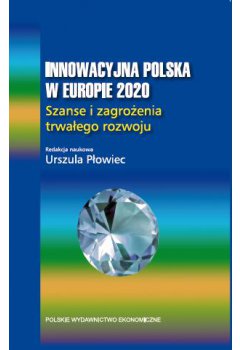Integracja monetarna. Wyzwania dla Polski
Publication date: 2011
Place publication: Warszawa
Publication: I
Binding: paperback
Format: 162x237
Poland’s accession to the European Union (EU) paved the way to potential introduction in our country of the common European currency — the euro. According to the Treaty establishing the European Community, upon becoming the EU membership Poland also became member of the Economic and Monetary Union (EMU), subject to the so-called derogation. The status of the EMU member state with derogation means that, formally, Poland has been obliged to introduce the euro, although the deadline to meet this obligation is indefinite.
The prospect of introducing the euro stirred a great deal of debate in Poland about costs and benefits of accepting and launching the common European currency. On the one hand, monetary integration understood as a country’s renouncing its national currency and the accession to the common currency area entails significant consequences for the capacity to run an independent economic policy in the countries participating in the common currency area. One result of replacing a country’s national currency with that of the monetary union is giving up the potential to run an independent monetary policy, the competences in this respect being overtaken by a supra-national institution that applies monetary policy adapted to the economic condition prevailing on the entire area of the monetary union.
On the other hand, the introduction of the common currency enables a country to achieve long-term benefits in the form of accelerated economic growth and the process of real convergence, understood as reduction of differences in the levels of GDP per capita existing among countries.
The book is an attempt to evaluate the balance of costs and benefits related with Poland’s accession to the eurozone. In his book, Jakub Borowski, PhD took account of the cost of resignation of Poland’s running its independent monetary policy as well as advantages stemming from the acceptance of the common currency.
SPIS TREŚCI
Podziękowania autora
Wstęp
Rozdział 1. Koszty integracji monetarnej
1.1. Unia monetarna a możliwość prowadzenia niezależnej polityki makroekonomicznej
1.2. Wstrząs asymetryczny i mechanizmy dostosowawcze
1.2.1. Swobodny przepływ siły roboczej
1.2.2. Zmiany cen i płac
1.2.3. Mechanizm kursowy
1.2.4. Stabilizatory fiskalne
1.3. Rozszerzona typologia wstrząsów asymetrycznych
1.4. Podatność gospodarki na wstrząsy asymetryczne
1.5. Skuteczność płynnego kursu walutowego w łagodzeniu wstrząsów gospodarczych
1.6. Ryzyko wystąpienia bąbla spekulacyjnego i destabilizacji systemu finansowego
1.7. Ryzyko zmniejszenia dyscypliny fiskalnej i kryzysu finansów publicznych
Rozdział 2. Korzyści z integracji monetarnej
2.1. Eliminacja kosztów transakcyjnych
2.2. Obniżenie stóp procentowych i wzrost inwestycji
2.3. Wzrost wymiany handlowej
2.3.1. Wpływ ryzyka kursowego na handel zagraniczny
2.3.2. Wpływ przyjęcia wspólnej waluty na handel zagraniczny
2.4. Wpływ przyjęcia wspólnej waluty na napływ zagranicznych inwestycji bezpośrednich
2.5. Pozostałe korzyści z integracji monetarnej
Rozdział 3. Koszty przystąpienia Polski do strefy euro
3.1. Dostosowania w sferze rynku pracy
3.1.1. Mobilność siły roboczej
3.1.2. Elastyczność płac
3.2. Krajowe stabilizatory fiskalne
3.3. Synchronizacja cykli koniunkturalnych
3.4. Trwałość cyklicznej zbieżności
3.5. System płynnego kursu walutowego w Polsce jako potencjalne źródło wstrząsów
3.6. Ryzyko wystąpienia bąbla spekulacyjnego na rynku nieruchomości
3.7. Ryzyko trwałego rozluźnienia dyscypliny fiskalnej
3.8. Podsumowanie
Rozdział 4. Korzyści z przystąpienia Polski do strefy euro
4.1. Eliminacja kosztów transakcyjnych
4.2. Obniżenie stóp procentowych
4.3. Wpływ wprowadzenia euro na handel zagraniczny
4.4. Wpływ wprowadzenia euro na PKB w Polsce
4.5. Przypadek Portugalii
4.6. Podsumowanie
Rozdział 5. Zagrożenia związane z uczestnictwem w ERM2
5.1. Główne czynniki ryzyka związanego z uczestnictwem w ERM2
5.2. ERM2 jako droga jednokierunkowa
5.3. Skuteczność interwencji walutowych w ERM2
5.4. Wybór terminu akcesji do ERM2
5.5. Znaczenie trwałego spełnienia kryterium inflacyjnego
5.6. Konsensus polityczny wokół akcesji do strefy euro
5.7. Podsumowanie
Rozdział 6. Bilans korzyści i kosztów przystąpienia Polski do strefy euro
6.1. Bilans korzyści i kosztów integracji monetarnej
6.2. Endogeniczność kryteriów optymalnego obszaru walutowego a korzyści netto z członkostwa Polski w strefie euro
6.3. Podsumowanie
Literatura
| Odbiór osobisty | 0 € |
| Kurier Inpost | 4 € |
| Kurier FedEX | 4 € |
| Inpost Paczkomaty | 4 € |
| Free delivery in Reader's Club | from 47 € |
Innowacyjna Polska w Europie 2020. Szanse i zagrożenia trwałego rozwoju
Publication date: 2010
Place publication: Warszawa
Publication: I
Binding: hard cover
Format: 162x237


